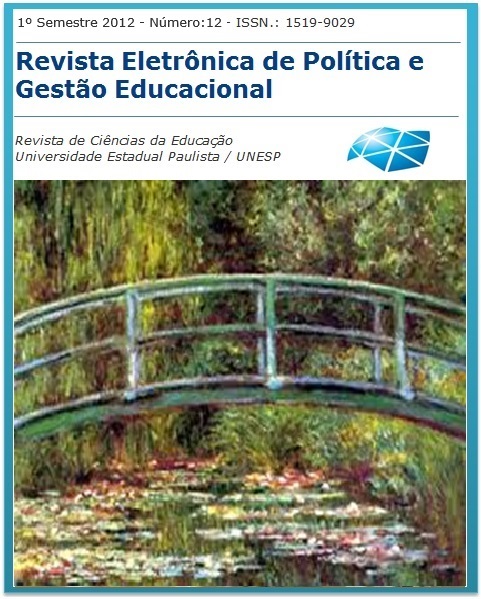Meanings of an age and a time – rural school, urban school (the constructions of difference): transition from the XIX to XX century
DOI:
https://doi.org/10.22633/rpge.v0i12.9329Keywords:
Rural teaching, Differentiation, Conceptions,Abstract
This text analyzes the genealogy of the differentiation between the rural and the urban school. An issue present in the so called “I Conference of Instruction”, in Rio de Janeiro, in 1883, the teaching in the rural municipalities was the goal of the report made by João Barbalho Uchôa Cavalcanti, Amaro Cavalcânti and Antônio Bahia da Silva Araújo (Bahia). According to Primitivo Moacy (1939), these were the three unique suggestions about the rural teaching in the Conference of Instruction in 1883. And they were also the first and unique opinions that were expressed in the 1860s of the Imperial Regime in Brazil in favor of immense farmer population. The passage from a political regime to the emergence of the Proclamation of the Republic did not modify the reality faced by the rural population in the access to the elementary school. Various factors contributed to the “abandoning” and the condition of inferiority to which the rural schools were submitted in the first decades of the republican regime, among which the position of importance given to the cities in the process of modernization of the Brazilian Society. Besides the precariousness of the buildings and the teacher’s education, allied with the lack of elementary schools in the rural area, the conceptions of teaching oscillated between the employment of the model of school disseminated in the cities and another specific model to the rural area.
Downloads
Downloads
Published
How to Cite
Issue
Section
License
Copyright (c) 2017 Revista on line de Política e Gestão Educacional

This work is licensed under a Creative Commons Attribution-NonCommercial-ShareAlike 4.0 International License.
Manuscritos aceitos e publicados são de propriedade da Revista on line de Política e Gestão Educacional. É vedada a submissão integral ou parcial do manuscrito a qualquer outro periódico. A responsabilidade do conteúdo dos artigos é exclusiva dos autores. É vedada a tradução para outro idioma sem a autorização escrita do Editor ouvida a Comissão Editorial Científica.











